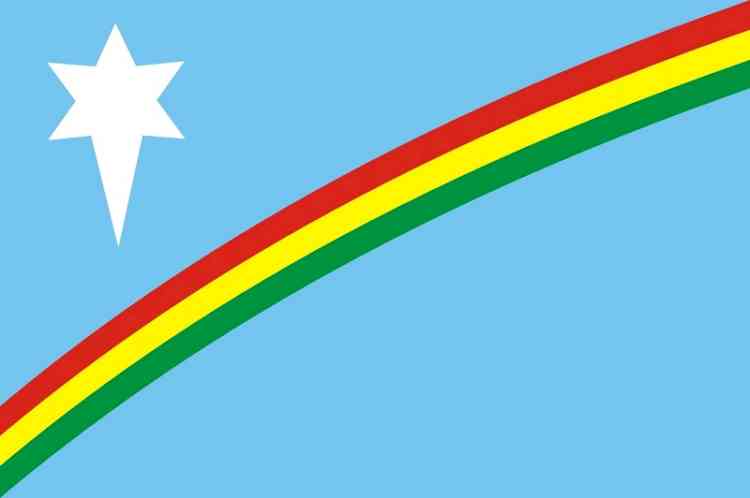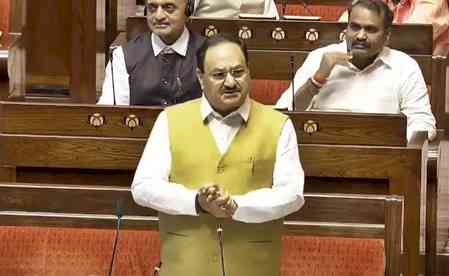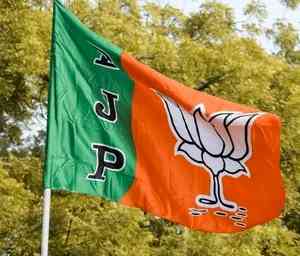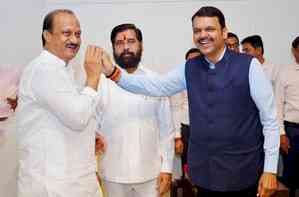Naga peace talks: Govt envoy giving wrong interpretation to confuse, says NSCN-IM
The National Socialist Council of Nagalim (Isak-Muivah) on Wednesday accused the Central government's representative for peace talks for "giving wrong interpretation in order to confuse the common people".

Kohima, June 1 (IANS) The National Socialist Council of Nagalim (Isak-Muivah) on Wednesday accused the Central government's representative for peace talks for "giving wrong interpretation in order to confuse the common people".
Without mentioning the name of Central government representative and former Special Director of the Intelligence Bureau A.K. Mishra, the dominant Naga outfit, in a statement, said: "NSCN leaders have categorically stated time and again that they will uphold the Framework Agreement (signed on August 3, 2015) in letter and spirit.
"But the representatives of the government of India have started giving wrong interpretations in order to confuse the common people. We too feel apprehensive about the clandestine plot of imposing another accord on the Nagas or hijacking the issue through their surrogates. The Nagas are again placed at a critical juncture where they have to make a decision to save their national future or perish. This is going to be the turning point of history. And now is the time to decide our destiny."
After sharp open differences between then central interlocutor and Nagaland Governor, R.N. Ravi, who had on a number of occasions rejected the NSCN-IM's demands of a Naga national flag and Naga Constitution, the Centre had appointed Mishra in his place.
After Ravi was transferred to Tamil Nadu last year, Mishra visited Nagaland twice since September last year and held a series of meetings with all stakeholders, including Assam Chief Minister Himanta Biswa Sarma too, who is also the Convener of the North East Democratic Alliance, the northeast unit of the National Democratic Alliance.
In his second week-long visit from April 18, he met Nagaland Chief Minister Neiphiu Rio, leaders of the NSCN-IM, Naga National Political Groups, core committee on Naga political issues, as well as the Naga civil society and discussed the matter.
The NSCN-IM, in its statement on Wednesday said that on the eve of the British departure, the Naga people took a decisive decision and declared their independence on August 14, 1947. In 1950, the Constituent Assembly invited the Nagas to join the Union of India, but the Naga people outrightly rejected the invitation. "That historic decision saved the future of the Nagas," it said.
"In 1960, a section of Nagas made an agreement with the government of India called the 16-point agreement, betraying the Naga national principle. But it was rejected and condemned by the Naga people. On November 11, 1975, another agreement called athe Shillong Accord was made to be signed within the parameters of the Indian Constitution.
"The National Assembly, held on August 16, 1976, condemned the Shillong Accord as a sell-out and reaffirmed the national principle. Had it not been condemned by the national assembly and saved the nation, the history and the future of the Nagas would have been murdered by that very accord of treason," the statement said.
After 'Emergency National Assembly', held on Tuesday at its General Headquarters at Hebron Camp, near Dimapur, the NSCN-IM said: "How can we forfeit the Naga national flag and Naga Constitution in the name of Naga political solution ? What belongs to us... that defines our political identity can never be compromised for the sweet morsel in the name of Naga political settlement. We cannot be made a laughing stock before the world by tamely succumbing to pressure or temptation."
The NSCN-IM's repeated insistence on a separate Naga flag and Constitution have become a big hurdle in the way of resolving the Naga issue.


 IANS
IANS 








